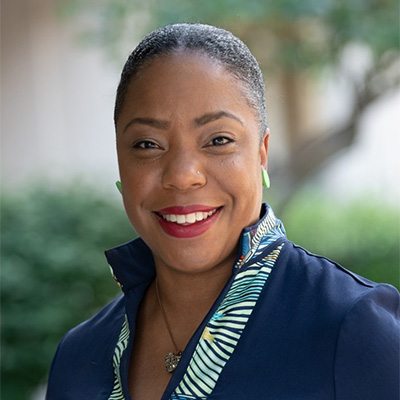My sister looks like our mother, but I act like her. While I am outgoing and grew up involved in way more summer camps and extracurricular activities, my big sister was (and still is) super-quiet and super-focused. After high school, she tried college and decided it wasn’t for her and instead started one of two jobs that would get her from young adulthood to full retirement — with benefits. Although I quietly watched her and wanted to mimic her style of dress (Gloria Vanderbilt and Sasson’s, anyone?), she had some other habits that I couldn’t see, which would change the financial trajectory of her (and our) family. Just as she preserved those perfectly pressed jeans (and the $50 savings bond I won at summer camp), she diligently saved a little bit each paycheck. That little bit allowed her to be the first in our family to conclude her professional career on a date of her choosing with a fully funded retirement account.
For many working Black Americans, retirement is the job you will do after you stop working your full-time job. Why? Because we don’t see (many, if any) examples of anyone in our families who can meet the retirement goal. Moreover, we often think that Social Security is our retirement plan. That wasn’t true for our mother, and I dare say it won’t be true for me (or many like me who still have another 20 years or so before retirement). My sister and I were raised by our mother, who picked up the slack and put herself through college while raising her siblings. She had to make choices about day-to-day survival (of her siblings and children) rather than saving some money for herself — for later. She was very successful in raising us all but not securing herself. She retired early (after a workplace injury) and quickly went through the retirement savings she had — and Social Security is not enough to live above the poverty line. Sound familiar?
Although many may have different stories, in the Black and Latino communities, many of us start from scratch — generation after generation. Although our financial priorities differ across cultures, accessing a workplace retirement plan increases an individual’s ability to save for retirement.Beyond having access to a workplace retirement plan and pay equity, having representation from a culturally familiar source that can offer sound and holistic advice (including planning for emergency savings) can make participation in a retirement plan likelier. Compared with other racial groups, increasing the retirement-plan participation rate for Black and Latino Americans has been shown to level the retirement-savings playing field significantly.
Fortunately, I work in an environment where we discuss retirement all day, every day. Having worked as a conference planner for the American Retirement Association (ARA), I have been “in the room” to learn from the many continuing-education sessions offered by the National Association of Plan Advisors (a division of the ARA) and to put what I heard in those rooms into action — including meeting with a financial planner to see what I can do to make strides toward a fully funded retirement account. I have even had the opportunity to meet financial advisors — who have been willing to share their time and talents through virtual and in-person community financial education sessions. These events provide the attendees with a much-needed financial education and model the possibility of a career in the financial services industry simultaneously. But we still need more advisors of color to connect with our communities.
To do our part, the ARA launched the Nourishing Our Wealth (NOW) mentoring program. It is a program for professionals of color in the retirement-plan industry or for those who would like to expand their portfolio to include retirement plans — including access to IRP (intro to retirement plans) for those new to retirement planning as a potential specialty and opportunity to earn the Certified Plan Fiduciary Advisor designation for those who already have experience in the industry. Here is how you can help. I’m just one email away for more information on the NOW program or to start your specialty in retirement plans. Today, by partnering with FARE, I can share professional education and mentoring opportunities for Black financial and retirement-plan professionals to grow the number of diverse professionals in the industry. By increasing the number of Black professionals in the industry, we can ensure the first Black financial or retirement professional you’ve met (or become) will not be the last.
About The Author
Erika Goodwin is the Director of Advocacy Engagement for the American Retirement Association (ARA). In her role, Erika is responsible for developing and executing strategies aimed at enhancing member engagement in ARA’s government affairs advocacy initiatives, including managing programs aimed at addressing social and economic issues affecting retirement policy and developing and sustaining relationships with members to encourage and facilitate member involvement with federal and state representatives. In addition, she communicates key developments to ARA members, leads “grasstops” engagement strategy, and manages ARA’s Political Action Committee.
Prior to joining the ARA Government Affairs team, Erika spent six years with the ARA as the National Association of Plan Advisors Conference Manager and NTSA Membership Manager. She graduated from Lincoln University, the first Historically Black College to confer degrees, in Pennsylvania, and holds the Project Management Professional and Certified Meetings Professional designations.








